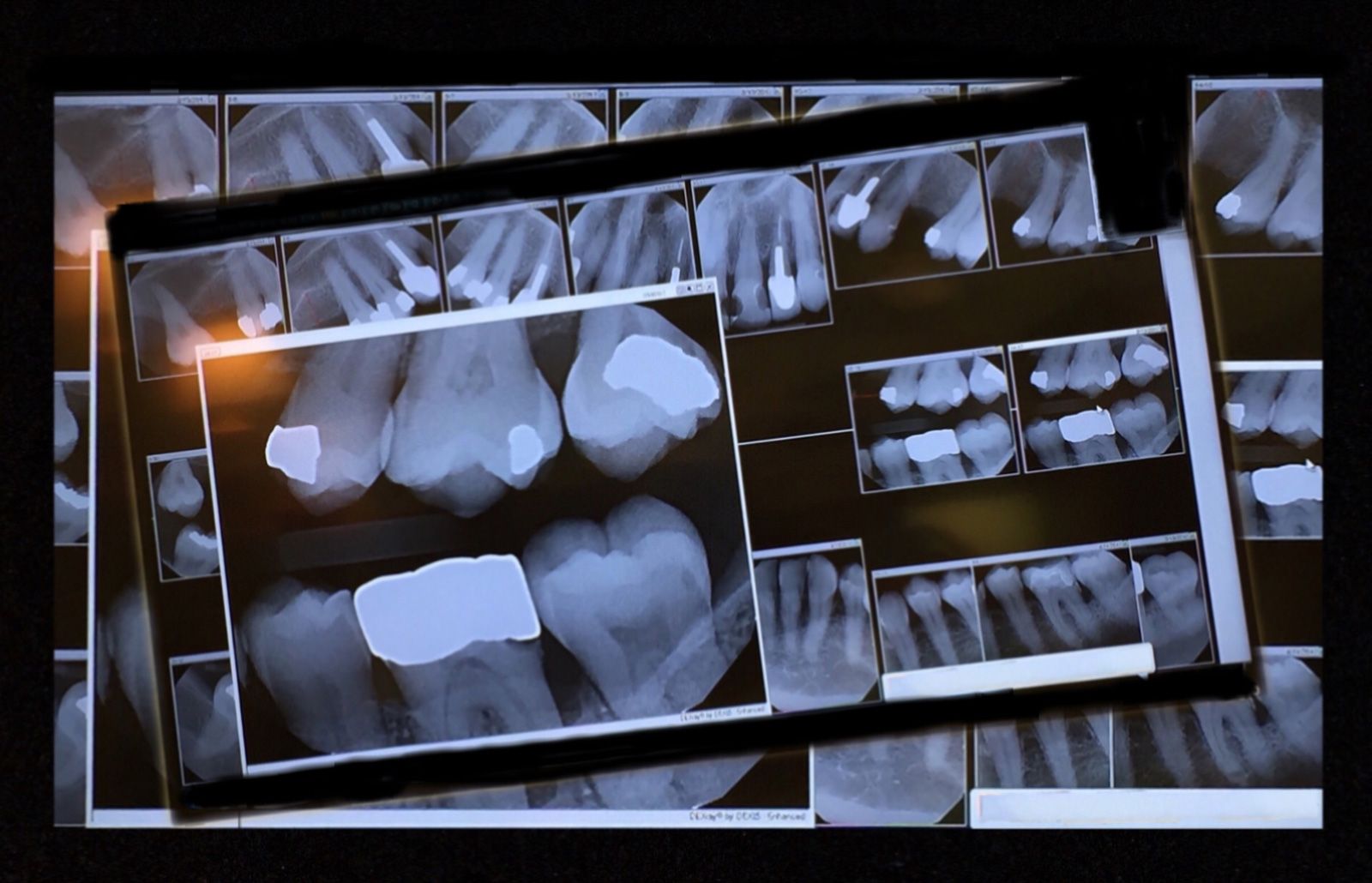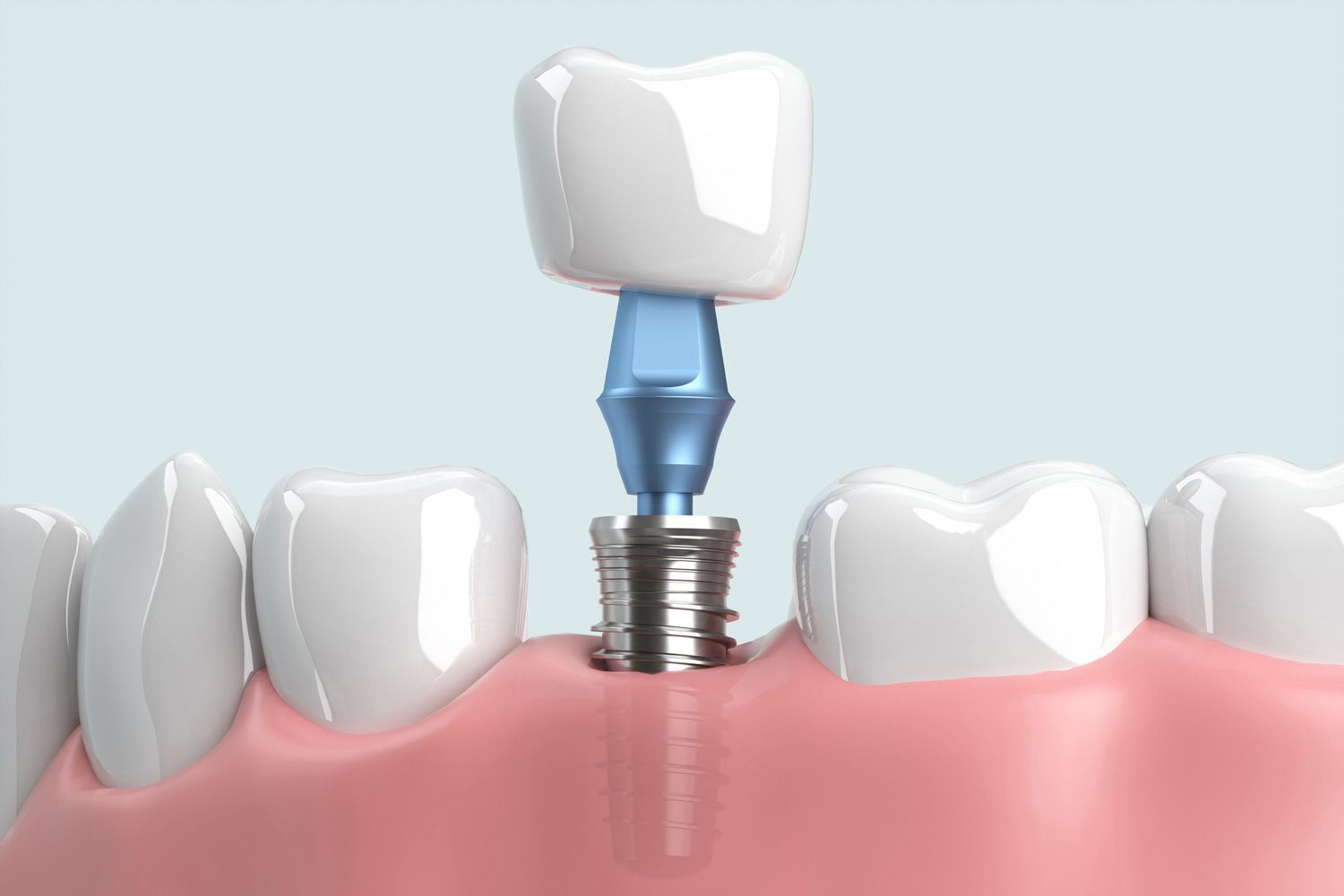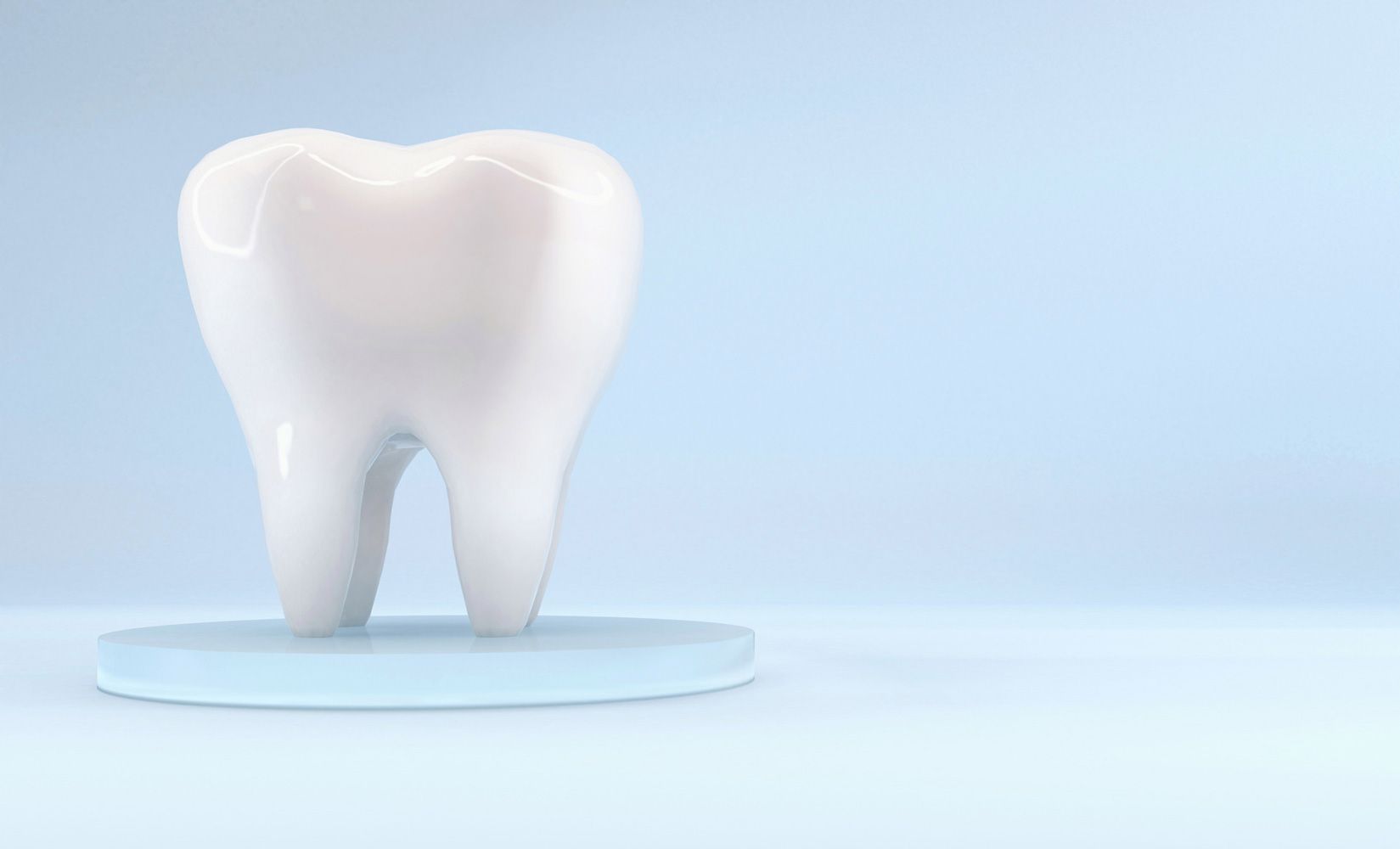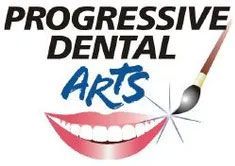General Dentistry
Affordable Dental Care in Delaware
General Dentistry
Enjoy a Lifetime of Benefits by Prioritizing Oral Health Habits
Incorporating dental checkups into your healthcare routine is crucial to maintaining overall health and wellness. However, many individuals tend to overlook this vital aspect of their well-being. Besides enhancing your smile, regular dental appointments safeguard your teeth and gums from illnesses like gingivitis and periodontal disease.

At Progressive Dental Arts in Delaware, we prioritize delivering exceptional routine cleanings and comprehensive dental care to all our patients. Our team of dental professionals is committed to guiding you and your family on the significance of using appropriate dental products for maintaining and enhancing your beautiful smiles.
Regular Checkups and Dental Cleanings Are a Must for Your Oral Health
Daily flossing and brushing are essential to maintain optimal oral health, but regular dental checkups are equally necessary.
Incorporating healthy dental habits into your daily routine, such as flossing daily and brushing your teeth at least twice daily, is crucial for maintaining a healthy and germ-free mouth and preventing diseases.
However, even with these healthy habits, it is still necessary to attend regular dental checkups and cleanings; trained dental professionals will detect and address potential problems that may go unnoticed. Scheduling dental checkups twice a year, spaced six months apart, is highly recommended to stay on top of your oral health and prevent any issues from developing unnoticed.
When you schedule an appointment, our hygienists will carefully look for the following:
- Early signs of gingivitis
- Tooth deterioration
- Check for indications of periodontal disease
- Our hygienists will also clean and rinse your teeth so when you walk out of our offices everyone you greet will be impressed by your healthy smile. Not only do regular checkups keep your teeth looking great, but it gives you the opportunity to talk one on one with the dentists at Progressive Dental Arts and discuss any concerns you may have. We can even introduce you to new treatments you didn’t know were available that could benefit you.
Don’t wait any longer. Give us a call today. We’re always happy to hear from you!
Digital X-rays and Digital Scanners
At Progressive Dental Arts in Delaware, we are proud to use cutting edge dental technology in our practice. We know using the latest technology is as significant to your dental care as advanced treatment techniques. Day in and day out, we go above and beyond to provide our patients with convenient and safe treatment options. You deserve the best, so our office only offers digital X-ray and digital scanning.

The Advantages of Digital Technology in Dentistry
Digital technology can improve dental care by providing computerized images that offer better quality, high resolution and high speed digital images that are used in diagnosing problem areas, and creating permanent restorations for your teeth. That means better efficiency and comfort for our patients. We can view your digital x-rays instantly using our digital xray sensors. In addition, utilizing a digital scanner, we are able to create 3D images of your mouth and gums for use with Invisalign, and creation of permanent restorations.
Implants
Implants in Delaware
Do you have missing teeth? If you do, replacing them sooner rather than later is crucial. Not only can missing teeth affect your eating ability and nutritional intake, but gaps between your teeth due to tooth loss can also alter your bite, leading to discomfort and pain. Even if the missing teeth are not visible, they can cause jawbone shifting, resulting in sagging in this area and making you look older. Dental implants are a fantastic option if you've been considering tooth replacement. They are durable, look natural, and can last a lifetime with proper care.

What Is a Dental Implant?
Dental Implants is one of the standard queries we receive, and it's excellent! An implant is an artificial tooth of metal and porcelain that seamlessly blends to create a natural appearance. The implant consists of two parts: the titanium implant body, which serves as a replacement for the tooth's missing root, and the crown, which is bonded to the top of the implant and resembles a natural tooth.
One of our patients' most frequent questions is, "Will anyone be able to tell that my tooth is fake?" The answer is no. With regular check-ups and dental care, no one can distinguish between a natural tooth and a dental implant. Don't worry; we'll keep your secret!
Did you know dental implants benefit other dental problems besides replacing missing teeth? Implants are ideal for securing lower dentures, which tend to shift more than upper dentures while eating and speaking.
If you're ready to improve your appearance, maintain your bite, and smile confidently again, contact Progressive Dental Arts Christiana’s' dental professionals to schedule a consultation today.
Laser Dentistry
Do you delay visiting the dentist due to anxiety or fear? You're not alone. Many people avoid getting necessary dental treatment because they fear the procedures. At Progressive Dental Arts, we offer laser dentistry to eliminate this fear.
With laser dentistry, you can experience a comfortable and relaxed dental treatment. Laser therapy is an excellent choice for pain-free and impressive results. Not only does laser dentistry offer better dental treatment than traditional methods, but it's also available to almost everyone!
How Does Laser Therapy Work?
This simple, straightforward approach to dentistry is great for gum reshaping as well as treating tooth decay. Laser therapy uses a thin stream of light energy for hard tissue and soft tissue treatments.
Hard tissue treatments include:
- Cavity detection
- Improving tooth sensitivity
- Dental fillings
Soft tissue treatments include:
- Gum treatments
- Gum reshaping and contouring
Benefits of Laser Therapy
Laser therapy dental treatment provides our patients with numerous benefits, such as the following:
- Anesthesia-free treatments – Some people have conditions that make anesthesia unsafe. Laser therapy offers alternatives.
- Less downtime – With traditional treatment approaches, it may take longer to get back to your daily routine. With laser therapy, this isn’t the case.
- Reduced chances of infection – Laser treatments are precise, which decreases the chances of developing a bacterial infection.
Overall, laser therapy delivers a better dental experience. It eases patient’s fears and provides a calming environment for individuals to get the dental treatments they need for good oral health.
To learn more about laser dentistry from Progressive Dental Arts in Newark, give our courteous and friendly dental staff a call to schedule an appointment for a personalized, one-on-one consultation with one of our dentists.
Fillings
Dental Restoratives (Fillings)
If you have a cavity at our dental, we advise getting dental restoration to prevent the decay from spreading. Fillings, or dental restoratives, are made from various materials, including composite materials and porcelain. Many dentists prefer using traditional materials like porcelain, which are dependable, providing durability and strength. These materials safeguard restored teeth, making them capable of withstanding the wear and tear of chewing, which is ideal for teeth in the back of the mouth.
Materials Used for Fillings

When deciding on filling materials, we must consider various factors that can directly affect the strength, performance, and permanency of dental restorations. We carefully consider the following factors when recommending filling materials:
- Type of material the restoratives are manufactured from
- Amount of remaining tooth structure
- Area and method of how the filling is placed
- Chew load of the tooth
Prior to starting your treatment, we will consult with you about all our restorative options. Discussing options with us will help you choose the most reliable dental restorative material for your individual situation. Here is some basic information about the two types of dental fillings — direct and indirect.
Direct Fillings: These are the fillings most people associate with cavity repair. Direct fillings are positioned straight onto the prepared cavity, requiring a single visit, and include resin ionomers, glass ionomers, and resin (composite) fillings:
Indirect Fillings:
These are more complex, requiring at least two visits. Indirect dental restoratives are inlays, crowns, onlays, and veneers.
For more information about the kinds of dental restoratives used at Progressive Dental Arts, call us. We’re always happy to provide you with any information you need so that you can control your oral health care decisions.
Extractions
Are you noticing that your child's baby tooth is not falling out on its own, possibly due to the length of its roots? Or are you experiencing problems with your wisdom tooth, such as jaw pain or a risk to the surrounding teeth? In either case, tooth extraction may be necessary. Other reasons to consider tooth removal include the following:
- Misshapen baby teeth
- Primary teeth that are preventing a permanent tooth to erupt
- Infections
- Orthodontic concerns
- Pain and crowding associated with wisdom teeth
Do All Tooth Extractions Require Restorative Services?
Not all tooth extractions require replacement services, and at Progressive Dental Arts in Delaware, we'll work with you to determine if tooth replacement is necessary. For example, wisdom teeth don't need replacement as they serve no function and do not affect your smile's appearance. However, a front tooth extraction due to injury, infection, or other reasons may require replacement for aesthetic purposes. Even back teeth may benefit from substitution as they play a significant role in chewing food and jaw function. We may recommend replacing the tooth with an implant or bridge to avoid problems like shifting teeth after back tooth extractions.
We understand that tooth extraction can be a daunting experience, but our caring and compassionate dentists will put your fears at ease and ensure a smooth, painless process.
Root Canals
Root Canals and Your Dental Health
If you're experiencing a persistent toothache, it could be due to a diseased nerve. In the past, extracting the affected tooth was the only solution. However, with advancements in technology and specialized procedures such as root canal treatment, patients can save their teeth.

Root canals are simple and quick procedures that we complete with minimal pain or discomfort. Despite common misconceptions, root canals are not as scary as they may seem, and our team at Progressive Dental Arts will ensure a comfortable experience for all our patients.
When Should I See My Dentist for a Root Canal?
It's not uncommon for patients who undergo root canal treatment to report no pain before the procedure. This is because not all infections cause pain. Nevertheless, most conditions present signs of an issue that needs to be addressed. Consider the following symptoms:
- Sensitivity to hot and cold foods
- Staining or bruising of the tooth
- Inflammation in nearby gums
- Discomfort when chewing
- Soreness when pressure is applied to the area
If you have any of the preceding symptoms on a regular basis, call us right away to get immediate treatment. A tooth repaired by a root canal treatment can last for a long time. In fact, many of our patients who have had root canals find that their restored teeth present no future problems.
Temporomandibular Disorder
Temporomandibular Disorder (TMD)
If you frequently experience severe neck pain, chronic facial pain, or frequent headaches, you may suffer from Temporomandibular Disorder (TMD). This condition affects many residents of Newark, DE, causing them to endure painful symptoms daily.
TMD comes from the overuse and fatigue of the temporomandibular joints (TMJ) that connect the lower jawbone to the skull. These joints involve essential activities such as speaking, chewing, swallowing, and even yawning. As TMD progresses, it can lead to joint pain and restrict jaw mobility.
Signs You May Have TMD:
TMD presents itself in a combination of the following ways:
- Swelling on the sides of the face
- Muscle spasms located in the jaw
- Alignment problems with your upper and lower teeth
- Restricted movement of the mouth
- Reoccurring jaw pain
- Ringing or a feeling of stuffiness in your ears
- Persistent headaches
- Repeated neck aches
- Popping or clicking sounds with jaw movement
Many people believe that they must grin and bear it when it comes to living with TMD. However, there are effective treatments available to help you manage your TMD.
Can TMD Be Prevented?
If you have been diagnosed with TMD, taking certain measures can help prevent its progression. Altering specific habits can significantly aid in alleviating chronic pain symptoms and reducing jaw pain and headaches. Here are some recommendations:
- Limit your gum chewing. Constant gum chewing can worsen your TMD.
- Use a headset when talking on the phone. Avoid cradling the handset between your shoulder and ear.
- Use both sides of your mouth to chew your food.
- Change your posture.
- Hold your face in a relaxed position. Keep your lips closed and your teeth apart.
- Take measures to avoid grinding your teeth. Consider wearing a mouthguard at night while you sleep.
For a proper diagnosis of TMD, call the offices of Progressive Dental Arts for a thorough examination.
Bridges
One of today’s method to replace missing teeth are bridges. They are commonly used to reduce stress on your bite and to preserve the shape of your face. At Progressive Dental Arts, we work closely with you to make sure you understand the bridging process and how this dental appliance can improve your oral health.
How do bridges work?
A fixed dental restoration is a treatment that permanently attaches an artificial tooth to neighboring natural teeth or dental implants in some instances. The advantages of a well-secured bridge are numerous - it not only serves to close gaps where one or more teeth may be missing, but it also enhances your appearance. Bonding the bridge to the adjacent teeth provides additional support and durability. The fabrication of bridges involves using different metals such as alloy, porcelain, gold, and sometimes a combination of these materials.
Wisdom Teeth
Gentle Wisdom Tooth Removal from Progressive Dental Arts in Delaware.
Typically, wisdom teeth start to appear during a person's late teens or early 20s. These third molars at the back of the mouth can quickly emerge through the gums and take their place amongst the other teeth without causing any problems. However, there are instances where these teeth may get impacted due to their angle or lack of space to emerge fully, causing pain and discomfort.
Let us clear up any misconceptions you may have heard about wisdom teeth. Although they can cause pain, a simple tooth removal procedure can quickly treat them. To avoid discomfort caused by wisdom teeth, speaking to your dentist, and exploring your options is crucial.
Do I Need My Wisdom Teeth Removed?
Many individuals are reluctant to undergo wisdom teeth extraction, but it may be necessary to prevent discomfort, inflammation, and intense pain.
We may also suggest removal at Progressive Dental Arts Christiana, even if your wisdom teeth have fully emerged; this is because wisdom teeth can be challenging to clean despite the lack of symptoms and may deteriorate over time; this can make your mouth vulnerable to infections, increasing your risk of developing gum disease.
When Is the Best Time for Wisdom Tooth Removal?
Whether to remove your wisdom teeth depends on your situation. Your dentist will use panoramic X-ray technology to help make this determination. If the recommendation is to remove it, it's crucial to have the procedure done promptly. Removing wisdom teeth as soon as they fully or partially emerge is ideal because the roots are not yet fully formed. The surrounding bone is less dense, making it easier to extract the tooth and reducing the recovery time.
How Long Is the Healing Process?
The recovery duration after wisdom tooth extraction depends on the complexity of the extractions, and it varies from person to person. Your dentist will provide detailed information about the recovery process to ensure a quick and smooth healing process without complications.
Call (302) 307-0448 now. We can help with any dental care service.
